Pakistani satellites eye India
Pakistan is about to launch two military satellites in June with aid from China. It is pursuing its renewed space programme, using the same clandestine tactics it used for developing its atomic programme
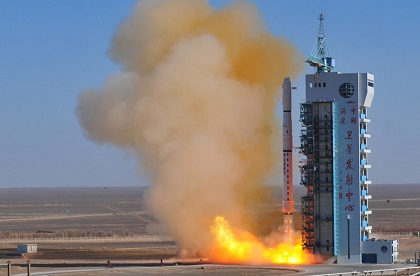 Courtesy: Chinanews
Courtesy: Chinanews
Pakistan is about to launch two military satellites in June with aid from China. It is pursuing its renewed space programme, using the same clandestine tactics it used for developing its atomic programme
 Courtesy: GLOBSEC 2018
Courtesy: GLOBSEC 2018
The GLOBSEC Bratislava Forum’s annual conference this year saw discussions on technology take precedence over geopolitics. Experts pointed out the gap between the adoption of digital technology and managing its risks
 Courtesy: ESO/G. Lombardi (glphoto.it)
Courtesy: ESO/G. Lombardi (glphoto.it)
Modern astronomy will stimulate scientific, technological, economic and human resource development—all high priorities for India. New Delhi should exploit its proximity to the ‘Roof of the World’ to advance its geopolitical interests
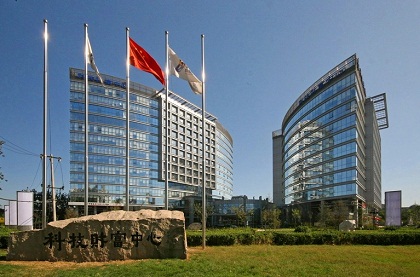 Courtesy: Wikipedia
Courtesy: Wikipedia
Chinese technology companies that are steadily establishing themselves in India have the potential to transform the scenario for entrepreneurs, consumers and governments even in the face of geopolitical tensions. The Indian government should view this development as an opportunity and an asset
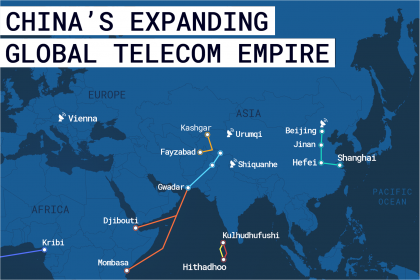 Courtesy: Gateway House
Courtesy: Gateway House
China is steadily deploying state-of-the-art communications systems to connect its strategic and economic assets in Asia. It is then linkingthe Asian mainland to Africa, and Africa to South America. The investment spree is rapidly making Beijing a major player in global telecommunications – and ‘informationisation warfare’.
 Courtesy: Pixabay/Comfreak
Courtesy: Pixabay/Comfreak
The two countries’ proposal to carry out a robotic sample-return mission to the Moon in the 2020s is a laudable attempt at catching up with Beijing’s rather more advanced lunar agenda. And there are many lessons that Japan can offer India
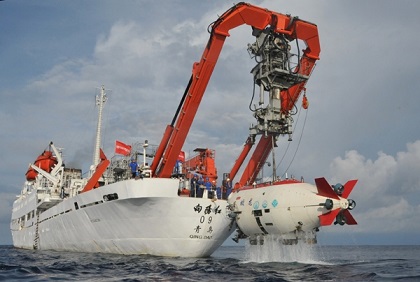 Courtesy: China Daily
Courtesy: China Daily
The People’s Liberation Army Navy (PLAN) has been steadily building its underwater infrastructure since the 1980s to undertake energy-efficient, long-range and dual-purpose reconnaissance and exploration missions. While the Indian Navy’s superiority is unquestionable, New Delhi should provide it the crucial futuristic paraphernalia
 Courtesy: Gateway House
Courtesy: Gateway House
Clas Neumann in his interview envisions the new type of globalisation that the digital economy has created. The increase in distribution of work and revolution of global supply chains. He discusses the winners and losers of the changes in the H1B visa systems, specifically the brain drain reversal, and the alterations the Indian business model needs to make to adjust to these changes. He further emphasises on the idea that for technology companies to foster and develop, their closeness to "innovation clusters" is most important. And describes the role of governments in enabling the cultivating of digital spaces and digital cities.
 Courtesy: Flickr/Times Asi
Courtesy: Flickr/Times Asi
China's refusal to accept the ruling of The Hague greatly harms its international reputation and will fuel regional concerns about China's rise. Nationalist sentiments stirred up by a sustained media campaign heighten the risk of a confrontation, but there is also a possibility for the Philippines to use its new leverage to its advantage through new negotiations.
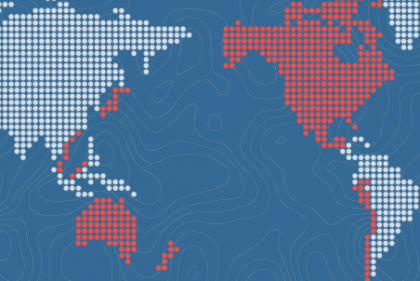 Courtesy: ustr.gov
Courtesy: ustr.gov
The Trans-Pacific Partnership has dropped strong Intellectual Property Rights regulations on India’s doorstep. The implications of these regulations could affect India’s own policies, as well as her global aspirations towards the potential Regional Comprehensive Economic Partnership.